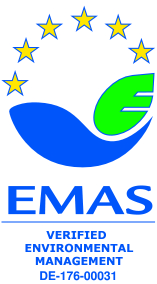The Life Cycle of e-Evidence
- The rise of evidence on mobile devices
The rise of evidence on mobile devices
Event fully booked!
|
Madrid, 23 May 2017 – 24 May 2017 |
|
|
Language: |
|
|---|---|
|
Event number: |
317DT61 |
 |
|
|
Area of law: |
|
|---|
Event fully booked!
Objective
Mobile devices such as smartphones and tablets contain personal
information such as call history, text messages, e-mails, digital
photographs, videos, calendar items, address books, passwords, and
credit card numbers. They can be useful as sources of digital evidence
to be examined when criminal activities occur.This seminar aims to share advanced knowledge and the exchange of experience and best practice between judges, prosecutors and lawyers in private practice who deal with criminal proceedings involving e-evidence on mobile devices.
Key topics
- Definition of 'e-evidence': practical examples of analogue and digital evidence
- Legal implications of e-evidence (collection, evaluation and admissibility)
- The rise of evidence on mobile devices
- Insights into different national EU criminal justice systems regarding the handling of e-evidence in court
About the project
This project, sponsored by the European Commission, consists of six seminars to take place in Zagreb, Madrid, Athens, Trier, Prague and Tallinn.Each seminar will have a specific focus:
- The life cycle of e-evidence: from the issuing order to the presentation in court passing by the custody chain
(Zagreb, 7-8 March 2017) - The life cycle of e-evidence: the rise of evidence on mobile devices (smartphones and tablets)
(Madrid, 23-24 May 2017) - The life cycle of e-evidence: handling e-evidence in online fraud cases
(Athens, 7-8 November 2017) - The life cycle of e-evidence: handling e-evidence in child sex abuse material
(Trier, February 2018) - The life cycle of e-evidence: the challenges posed by “Cloud Computing”
(Prague, May 2018) - The life cycle of e-evidence: acquisition of e-evidence and jurisdictional issues
(Tallinn, September 2018)
Who should attend?
Judges, prosecutors and lawyers in private practice from EU Member States.Please note that due to the large number of applications for this series on e-evidence, participants can register only for 1 event (of their choice) out of the 6 outlined above.
Participation conditions
Registration fee: €200 with no discounts
The number of places
available for participants is limited. Applications will be accepted on
a first come, first served basis and according to nationalities. All
applicants will be informed if they have been selected or not after
application has closed.Travel costs up to €300 (including taxi costs) and two nights' hotel accommodation up to €135 per night will be reimbursed by ERA upon receipt of the original receipts, tickets, boarding passes, invoices after the seminar.
Participants are asked to book their own travel and accommodation.
These rules do not apply to representatives of EU Institutions and Agencies who are supposed to cover their own travel and accommodation.
Participants should come from eligible EU Member States (UK and Denmark do not participate in the Justice Programme 2014-2020).

Programme

contact
European Commission








